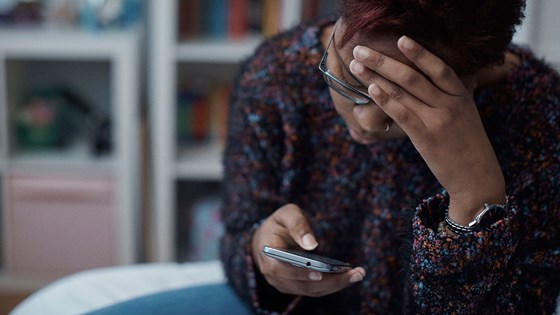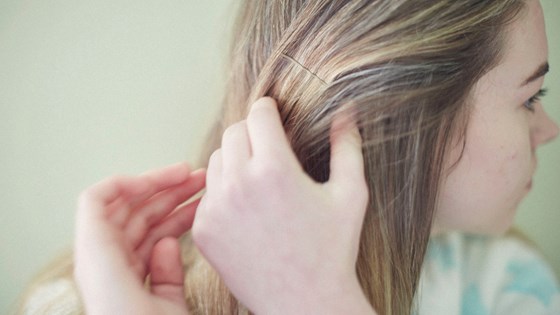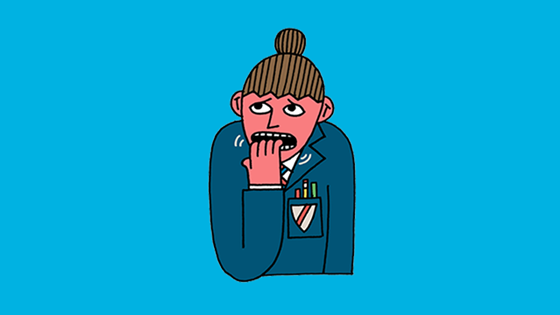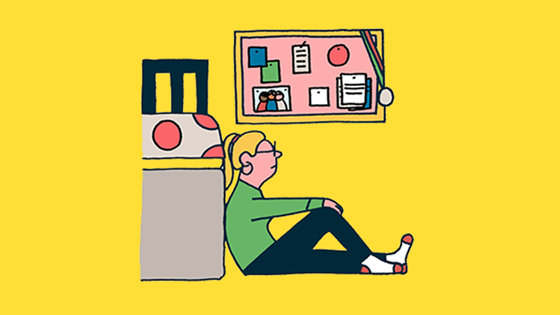
Eating problems during Ramadan: Amina's story
Amina is recovering from an eating disorder. During the month of Ramadan when Muslims fast, it was hard for her to cope when she ate at night. She believes religion shouldn't stop people from getting help.
"The hardest thing about Ramadan is that it's all centred on food"
Amina is 19 and is recovering from an eating disorder after having symptoms of both anorexia and bulimia. She was diagnosed at the age of 16 when she was hardly eating anything and became very obsessed with exercise.
Now Ramadan, the month of fasting for Muslims, can bring back painful memories. The 18-hour spiritual fasts are not easy and for some people, the month can be a difficult challenge, especially for people with eating disorders.
"The hardest thing about Ramadan is that it's all centred on food. For me, the fast in the day is easier. It's at night that it's more difficult when families gather after 18 hours of fasting to break the fast," she says.
Amina explains that the problem for her was that she was eating at night and then very early the next morning.
"In a space of 5 or 6 hours, that's all you can eat until your next fast begins so it feels like a binge," she says. Of course it's not a binge as your body needs that energy to fast the next day." She says it is important that people with the condition realise that Muslims do not have to fast if they are unwell.
"Last year I didn't fast at all, and that was a difficult decision to make because my faith is important to me," she says. "To realise fasting might be making it hard for my recovery was the right decision though." This year she has decided to fast on some days.
Amina says there had been one particularly difficult evening with her family, when they had all started eating after breaking their fast. "I was having a good time and hadn't really been paying any attention to what I'd been eating and then when I realised, I felt a lot of the feelings I've felt surrounding food, and the guilt and shame of not being in control. I had to fight quite hard the urge to make myself sick," she explains.
Amina says confiding in her mum, as well as speaking to Muslim doctors about fasting during Ramadan, has helped her. Usman Mahmood, an imam from Birmingham Central Mosque, says, ''any sort of worship where health becomes an issue, that worship has to stop. Instead of fasting, people can pay 'Fidyah' where they pay over the month for a poor person to eat."
Maha Khan, who was diagnosed with anorexia, has started the Islam and Eating Disorders blog to raise awareness in the Muslim community.
"Fasting is a huge part of eating disorders, and there is added social pressure because people come together to eat in the evenings," she says.
"I try to bring in the Koran to emphasise that when you need the medical treatment, you have to go to your doctor," she adds.
Amina agrees with this and says, "Religion shouldn't stand in the way of recovery, it should aid it. It took me a while to realise that not fasting last year doesn't make me a bad person, it makes me a good one. I made a choice to look after my body and mind."
This story was written by Anisa Kadri of BBC Asian Network and first appeared on the BBC website.
if you're worried about something
You're not alone. You can get support by:
- speaking to a counsellor on the phone, in a 1-2-1 counsellor chat or by email
- speaking to other young people on the message boards
- reading letters from young people on Ask Sam or writing one yourself
- using the Art box - sometimes it helps to express how you feel
- creating an account with us and using the mood tracker to see how your mood changes over time.







